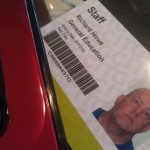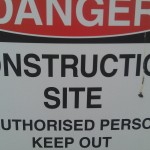Do you still respect and value the staff you ‘let go’ or are they simply a liability?
InterviewIQ’s own Deborah Barit poses this intriguing question in a fascinating look at how a Swiss Bank handled this conundrum when retrenching their UK based staff.
Take it away Deborah……..
As the demands of work become greater, needing to work smarter and faster, a new streamlined approach has been developed to disengage human resources.
Gone are the days when the human resources or line managers would personally talk to each individual when people needed to be retrenched. Even using outsourcing services may be a luxury. It seems that email and text have gained in popularity. Easy, quick and not personal.
However it seems these approaches may be too time consuming when ‘disengaging’ a significant number of staff.
So why not just cancel your employee’s security passes over the weekend?
They’ll find out soon enough when they can’t get into the building on Monday morning, right?
But did UBS think about the long-term collateral damage?
Imagine for a moment you are one of the staff not let go. You arrive at work confronted at the front door by the scene of your (now former) work colleagues who are shocked, confused and upset because they can’t get in. And they now know they’ve been sacked. But you have to walk past them to start your day at work.
- How unsettled do you feel?
- What’s going through your mind all day?
- And when the injustice really hits you, who’s your anger directed at?
- Where does your loyalty lie now?
When recruiting, organisations want to be viewed as an employer of choice by prospective employees. To feel special and attract the best and brightest to the organisation, many organisations go to great lengths to choose the right people, both by insisting on a number of interviews as well as aptitude testing, psych testing, checking referees and even conducting online searches.
All this takes a lot of time, but at the end of this rigorous selection process, the successful candidate feels they are both special and prepared for the hurdles in an Olympic final.
However when letting human resources go, due to the current economic climate, it seems a carefully planned exit strategy often does not get the same care and attention.
When the economic climate improves they will again need to employ human resources.
What strategies will they use to attract the best and brightest?
While money is very attractive, it will buy the brains but will it buy the commitment and loyalty which each organisation needs to grow their business and increase profits?
I wonder, will the next group of ‘human resources’ trust their employer or will they always be on the lookout for a better deal?
Sitting at their desks with a resume ready to send or a phone call to make and their personal belongings already packed and happily return that security card before it is cancelled.
When human resources managers review the fall out of ill-considered exit strategies, will they yet again reinvent the wheel?
{ 0 comments }


 There’s a flood of advice out there telling us that we’re behind the times if we aren’t using social media to job hunt. But what I see less of are the practical ‘how-to’ steps telling social media ‘infants’ like me how to go about it.
There’s a flood of advice out there telling us that we’re behind the times if we aren’t using social media to job hunt. But what I see less of are the practical ‘how-to’ steps telling social media ‘infants’ like me how to go about it.



